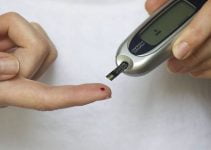Want to know about the menstrual cycle while breastfeeding? During this time, nearly anything is seen as a normal occurrence. Every woman experience postpartum bleeding after birth but this is not considered a period. Find out more below.
 Breastfeeding suppresses the menstruation period for a while. Some mothers may not menstruate while breastfeeding for weeks, months and maybe years.
Breastfeeding suppresses the menstruation period for a while. Some mothers may not menstruate while breastfeeding for weeks, months and maybe years.
Some even have to wean their baby completely before the first period returns. There are others you will see their first period when their babies start to take supplemental foods or sleep longer during the night.
When menstruation returns it might continue to be unbalanced during lactation so it’s not uncommon to have longer or shorter periods while breastfeeding. Besides that, it’s not abnormal to miss a period or have your first-period return and stop for several months.
When Will Your Period Return
There are several factors that will determine when your first period will return after you give birth. This includes how often you nurse the baby and give the baby supplemental feeds in a bottle; how long your baby sleeps at nights; whether or not he/she is taking a pacifier or is introduced to solids as well as your body chemistry and how it is responding to hormones.
Menstruation is more likely to return quickly after the stimulation is decreased on the breast, especially at night.
This time-frame for many moms is when they start sleep training and the mom and baby are finally getting some much-needed rest.
For some, this happens as early as six months and while it’s glorious for the parent, it does also have the tendency to bring back the period.
This can also start once the baby starts on solid foods, which again, is right around the same time.
Fertility and Breastfeeding
It is important to know that you will be fertile if you resume a normal menstrual cycle while breastfeeding. This means that you should take precautions against getting pregnant.
Some women use the first period as a warning signal to know that they can become pregnant, but it’s also a rare possibility for some to conceive before the return of the first period.
Based on that information you should know that breastfeeding should not be used as birth control. According to Kelly Mom, natural pregnancy prevention is at 98-99.5 percent effective when three conditions are met, your baby is under six month, you haven’t gotten your period yet, and your baby is feeding on cue, not on a schedule and takes only breast milk.
If these three conditions aren’t met, then you shouldn’t use breastfeeding as a form of contraception. Again, you can get pregnant before you even experience your first period after delivery.
Nursing With Your Period
Another thing to know is that nursing while menstruating will not be harmful to your baby. The breast milk will still be of good quality, but some hormonal changes can change the taste during this time.
During menstruation or ovulation, you might also notice that your milk supply is reduced[1]. These changes could cause your baby to refuse the milk or become fussy on occasion, but this normally lasts for a few days.
It’s also normal during ovulation for your nipples to be even more sensitive than they normally are (because your body is more enhanced for sexual activity so to speak) and it could make it a bit more uncomfortable to nurse during that time.
But that too shall pass rather quickly.
Relief for Your Tired Nipples and Supply Issues
There are some minerals and vitamins supplements that will help as well. You might want to consider adding calcium or magnesium to your diet.
The reason for the additional calcium is because during your period, the calcium levels in your blood are decreased and that can cause bloating and fatigue.
This supplement could help alleviate some of the issues that you are dealing with.[2]
In the event that you are experiencing a reduction in your breast milk while menstruating, you could try using a nursing tea or other galactagogues to increase the supply naturally.
You can also try different methods for increasing your supply as well such as alternating breasts twice during each session, avoiding bottles and pacifiers to encourage more latching, adding additional pumping session between feedings or right after and generally nursing more.
Remember those comfort feeding days where you were literally a human pacifier? Going back to that kind of situation could help increase your supply because your body is making more to keep up with demands. The more you nurse and pump, the more your body will be stimulated to make.
You can also get help and advice from your doctor. Women are often recommended to see a pediatrician regularly to ensure that their babies are getting sufficient milk and are gaining weight consistently.
The pediatrician might recommend a supplement if your breast milk supply decreases to the point where you don’t have enough for your baby. You can also see your own doctor or a lactation consultant to help with supply issues or nursing issues as well. They could be great assets in helping you to nurse longer than you would if you didn’t have support.
You can find additional resources available if you need to learn more about the menstrual cycle while breastfeeding.
References
- https://kellymom.com/hot-topics/pumping_decrease/
- https://www.ncbi.nlm.nih.gov/pmc/articles/PMC5313351/



